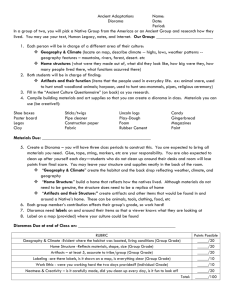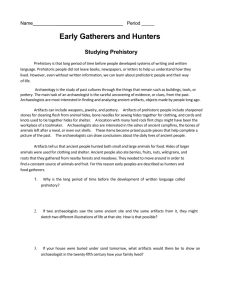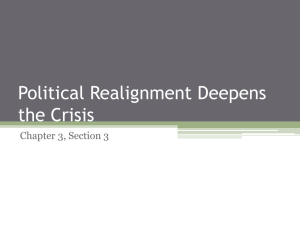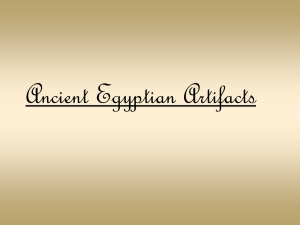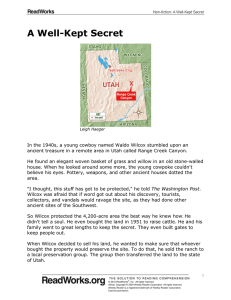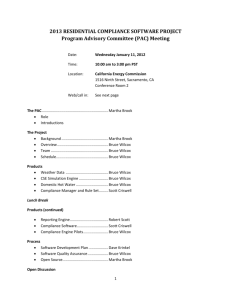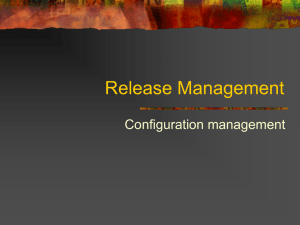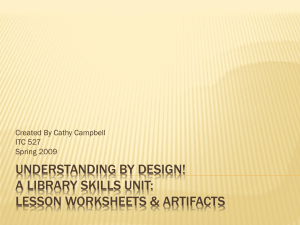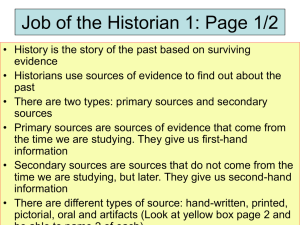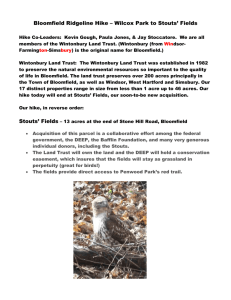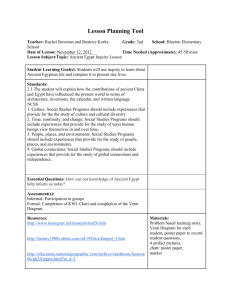Sample Responses
advertisement
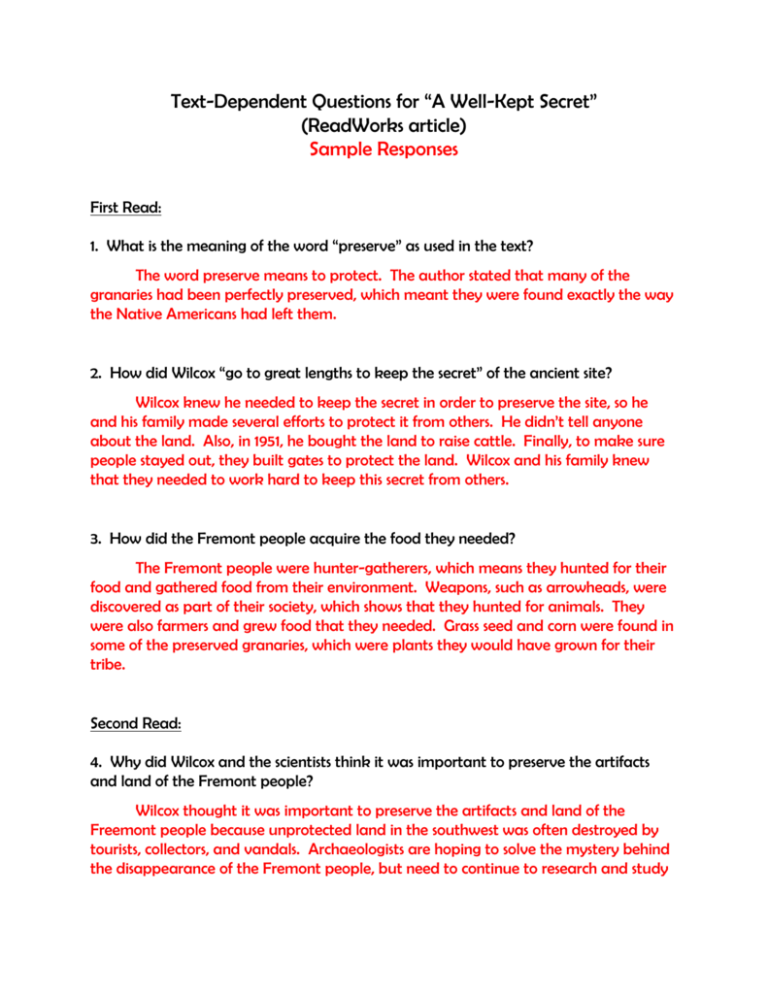
Text-Dependent Questions for “A Well-Kept Secret” (ReadWorks article) Sample Responses First Read: 1. What is the meaning of the word “preserve” as used in the text? The word preserve means to protect. The author stated that many of the granaries had been perfectly preserved, which meant they were found exactly the way the Native Americans had left them. 2. How did Wilcox “go to great lengths to keep the secret” of the ancient site? Wilcox knew he needed to keep the secret in order to preserve the site, so he and his family made several efforts to protect it from others. He didn’t tell anyone about the land. Also, in 1951, he bought the land to raise cattle. Finally, to make sure people stayed out, they built gates to protect the land. Wilcox and his family knew that they needed to work hard to keep this secret from others. 3. How did the Fremont people acquire the food they needed? The Fremont people were hunter-gatherers, which means they hunted for their food and gathered food from their environment. Weapons, such as arrowheads, were discovered as part of their society, which shows that they hunted for animals. They were also farmers and grew food that they needed. Grass seed and corn were found in some of the preserved granaries, which were plants they would have grown for their tribe. Second Read: 4. Why did Wilcox and the scientists think it was important to preserve the artifacts and land of the Fremont people? Wilcox thought it was important to preserve the artifacts and land of the Freemont people because unprotected land in the southwest was often destroyed by tourists, collectors, and vandals. Archaeologists are hoping to solve the mystery behind the disappearance of the Fremont people, but need to continue to research and study the artifacts and land left behind. Without these intact, scientists may never know what really happened to this group of Native Americans. 5. What does the author mean by the phrase “loved to death”? The author uses the phrase “loved to death” to describe what might happen if everyone was allowed to explore the ancient land. Many people would love to see the artifacts and land as the Fremont people had lived, but the site would be overrun with people who would “ransack” the site, which would destroy the ancient land by removing or destroying the artifacts. 6. Why is Wilcox considered a hero? In the last paragraph, Wilcox claims that archeologists consider him a hero. If he wouldn’t have locked the gates, keeping people out of the ancient site for all this time, the land would most likely have been destroyed. Because he tried so hard to keep it a secret and keep people out, it has remained intact and archeologists are able to study the land and artifacts to learn more about this ancient Native American tribe, the Freemont people. Third Read: Determine the main ideas of the article and use supporting details to summarize the key points. In range Creek Canyon, a remote area of Utah, a cowboy named Waldo Wilcox came across an area that contained many ancient artifacts and houses. He decided that they should be preserved so that they wouldn’t be destroyed by others and so he and his family worked hard to make sure the area was kept a secret. He bought the land, built a gate, and later contacted a local preservation group to make sure that the land would be preserved. Once the state of Utah owned the land, scientists were able to study the site and artifacts to learn more about the people that had lived there long ago – a Native American group called the Freemont people. The scientists have learned a lot about the Freemont people, including when they lived there, where some of their villages were located, and how they stored their food. There are still a lot of unanswered questions however, which is why they are still careful about who has access to the ancient site. If Wilcox hadn’t been so careful in keeping his secret about the land, the ancient society of the Freemont people may have remained a mystery forever.
